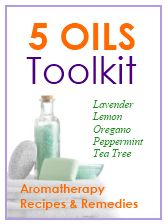Aromatherapy - Essential Oils
Essential oils are naturally-occurring oils that have been extracted from the various parts of different plants including the leaves, the bark, the stem, the flowers, the fruits and even the roots.
Are you looking for information on the following:
|
The heart of aromatherapy is in its essential oils.
Essential oils are naturally-occurring oils which have been extracted from various parts of different plants including the leaves, the bark, the stem, the flowers, the fruits and even the roots.
Essential oils are sometimes confused with perfumes. One difference is that perfumes are frequently manufactured using a variety of ingredients, many of which are synthetic and do not provide the same types of mind and body benefits as the natural essential oils from botanical sources.
Methods of Extracting Essential Oils
There are several commonly used methods of extracting the essential oils from plant matter.
The oldest of these extraction methods, and the one that is still the most commonly used, is distillation...essentially the same process which is made in the process of making moonshine.
In this relatively simple and least expensive method of essential oil extraction, the plant material is heated. The volatile components within the material are then condensed and collected from the resulting vapors.
Maceration, enfleurage, solvent extraction and expression are other methods commonly used to extract essential oils from plant matter.
Quality of Essential Oils
An interesting fact about essential oils, and something most people don't realize, is that there essential oils can come in different qualtiy levels.
While there is no formal system of grading essential oils, where and how the plant was grown is one factor which can have a significant impact on the quality of the oils that are extracted.
Environmental conditions such as the weather and soil quality will affect the harvest of the botanical material as will the actual time of harvest, the agricultural methods used for planting and harvesting, and, believe it or not, the way the plant material is treated after harvesting.
Chemical Compnents of Essential Oils
Various essential oils can contain a number of different chemical components and it is these particular components that help influence the various effects on the body. While this can be dangerous in some situations, it really isn't much of a factor in the essential oils used in aromatherapy as our bodies naturally produce and utilize many of these chemical components.
First of all, the essential oils themselves stimulate our sense of smell. Then, the chemical components take over, stimulating, sedating, or balancing the systems of our bodies.
This process is the essential (pun intended) basis of much of the practice of aromatherapy.
For example, the type of chemical component known as "ester" acts upon us as a sedative, a calming agent, an anti-fungal and can produce a beneficial anti-inflammatory response.
Esters of various forms are found in lavender, chamomile, bergamot and sage, for example. Ketones found in botanicals such as rosemary, camphor, sage and eucalyptus can promote new cell growth and help wounds heal faster.
Alcoholscan act as diuretics, kill bacteria, and energize and stimulate the body.
Tea tree, ginger, rose, rosewood, peppermint, sandalwood and patchouli are examples of some of the plants that contain various alcohols.
The many methods used to extract essential oils from plant material generally produce highly concentrated oils. As a result, only a very small quantity of the essential oil is needed to reap its benefits.
While essential oils are used in many ways, often concentrated essential oils are first diluted and then inhaled or absorbed. This makes sense for an economical point of view, especially when you initially realize that essential oils can be quite expensive.
When, in becoming more deeply involved in aromatherapy, you begin shopping for essential oils, you'll also notice that many are sold, not as unique products, but as blends of different oils. Buying blended essential oils online can save you a good deal of money, but, it is also very easy to create your own essential oil blends, and doing so can be more fun...and is not as difficult as you might think.
How to make over 130 natural home remedies & aromatherapy recipes using only 5 essential oils.
|

|
Benefits of Aromatherapy
Reiki
|
You will find what you are looking for about essential oils here

|


